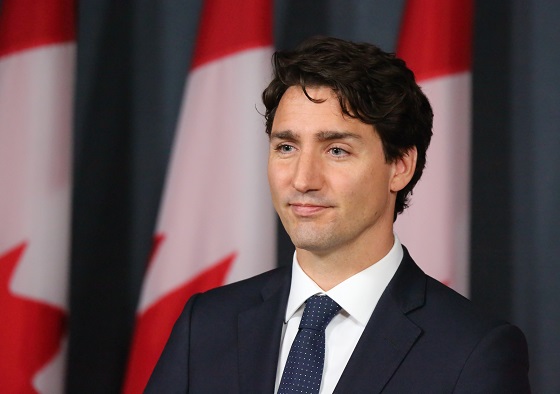Written By Dan McTeague
It turns out that the story circulating last week from The Toronto Star that the Liberals were considering a “rebranding” of their Carbon Taxation program was true. On Wednesday the Liberals announced that the previously known “Climate Action Incentive Payment,” will now be referred to as the “Canada Carbon Rebate.” This was done “in an attempt to tackle what it calls confusion and misconceptions about the scheme.”
According to Liberal Minister Seamus O’Regan “If we can speak the language that people speak, because people say the words ‘carbon,’ they say the words, ‘rebate,’ right? And if we can speak that language, that’s important, so people understand what’s going on here.”
The Liberals seem to actually believe that the problem Canadians have with the carbon tax, and their growing support for Pierre Poilievre’s Conservatives to “Axe the Tax,” has simply been a matter of Canadians not “understand[ing] what is going on.”
The implication, of course, is that Canadians aren’t really struggling to pay their bills, feed their families and heat their homes right now. That their lives haven’t gotten more expensive overall as the cost of fuel has risen steadily.
That they’re just confused by poor branding — probably some high-priced marketing firm’s fault, really — and that once Trudeau & Co. find the right words, people will finally be happy to pay the tax, and be grateful to get some of their money back, since doing so will — somehow — save the planet.
Which is ridiculous.
It’s worth pointing out that this isn’t even the first time Trudeau’s carbon tax has been rebranded. You might recall that prior to 2018, the scheme was referred to as “carbon pricing” or simply the “carbon tax.” If you look back at Hansard records — the records of Parliamentary debate — you can see that in October 2018, Liberal MPs began referring to the scheme as a ‘price on pollution.’ Of course, calling carbon dioxide, a gas on which all life on earth depends, “pollution” was an obvious attempt to justify taxing Canadians for it.
But no matter what they call the thing, they are determined not to let it go.
Recent polls have indicated that the carbon tax is losing support from Canadians. A Nanos poll showed nearly half of Canadians think the carbon tax is ineffective; another poll indicates most Canadians want it reduced or killed altogether.
So why are the Liberals clinging so desperately to this tax that Canadians don’t support? Going so far as to rebrand, reframe, recommunicate rather than scrap it?
I might start to sound like a broken record here, but the only way to understand the context of the carbon tax, the second carbon tax (the Clean Fuel Standard,) an emissions cap, electric vehicle mandates and on and on, is to recognize that they are all components of the insane Net-Zero-by-2050 scheme dreamed up by Justin Trudeau and his UN and World Economic Forum cronies.
A carbon tax is simply one of the pillars of their Net Zero Agenda which they contend will enable Canada to achieve this nebulous goal of Net Zero emissions by 2050.
Though apparently to achieve it, the tax will need to get progressively more punishing. On April 1 the carbon tax goes up another $15, to $80 per ton, and will continue to rise yearly until it hits $170 a ton in 2030. Canadians are already feeling the pinch and it is hard to imagine it getting worse. But Liberals aren’t concerned with the struggles of everyday people and that is the reality. This has become a communications issue to them, not an existential one.
As to the new name itself, the Trudeau Liberals love to pay lip service to their rebate scheme and claim that Canadians are getting back more than they pay. But as we well know even the Independent Parliamentary Budget Officer found that, contrary to what their talking point, a substantial majority of households are paying more in carbon taxes than they get back.
Their communications plan too is so unhinged that they are pitching the carbon tax as an affordability measure designed to help struggling Canadians. Of course this begs the question: If Canadians are getting back more than they pay in carbon taxes, why take the money in the first place?
The rubber is hitting the road and Canadians have had enough. No matter what it’s called, the carbon tax has made our lives worse.
That will continue to be true, no matter what they call it.
Dan McTeague is President of Canadians for Affordable Energy

























